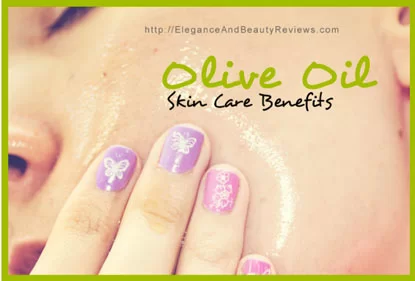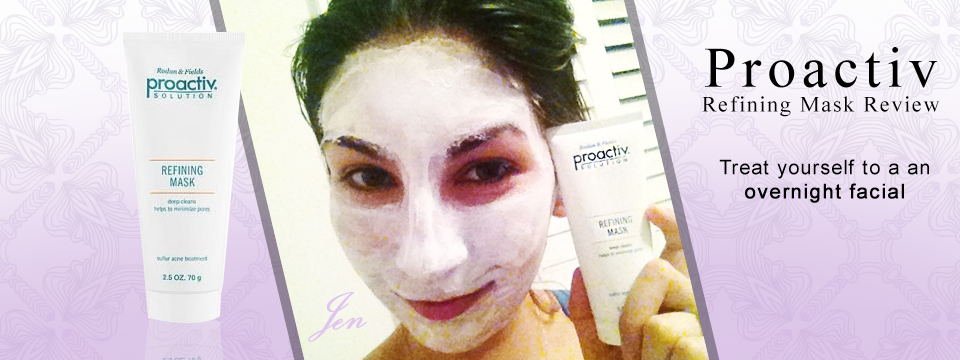Olive oil has long been revered for its numerous health benefits and culinary uses, but did you know that it can also work wonders for your skin? This versatile oil, derived from the fruit of the olive tree, has been used for centuries in skincare routines due to its rich composition of antioxidants, vitamins, and fatty acids. These properties make olive oil a popular choice for those seeking natural remedies to nourish and protect their skin.
One of the key reasons why olive oil is beneficial for the skin is its ability to moisturize and hydrate. The fatty acids present in olive oil help to seal in moisture, preventing water loss and keeping the skin soft and supple. This makes it particularly useful for individuals with dry or dehydrated skin. Additionally, olive oil contains squalene, a compound that mimics the skin’s natural sebum and helps to maintain its moisture balance.
In addition to its moisturizing properties, olive oil also possesses anti-inflammatory benefits. It contains polyphenols, which have been found to reduce inflammation and soothe irritated skin. This makes it an ideal choice for individuals with sensitive or inflamed skin conditions such as eczema or rosacea. By reducing redness and inflammation, olive oil can help promote a calmer complexion.
Furthermore, olive oil is packed with antioxidants that can help protect the skin against free radicals and oxidative stress. Free radicals are unstable molecules that can damage cells and contribute to premature aging. The antioxidants found in olive oil neutralize these harmful molecules, helping to prevent wrinkles, fine lines, and other signs of aging.
It is important to note that while olive oil offers many benefits for the skin, it may not be suitable for everyone. Individuals with oily or acne-prone skin may find that using pure olive oil on their face exacerbates their condition. This is because olive oil can be comedogenic, meaning it has the potential to clog pores and lead to breakouts. However, this can be mitigated by using lighter formulations of olive oil or incorporating it into a skincare routine that includes cleansing and exfoliating.
Benefits of Using Olive Oil on Your Skin
Olive oil has been used for centuries as a natural remedy for various ailments, including skincare. It is rich in antioxidants, vitamins, and healthy fats that can provide numerous benefits to your skin. By incorporating olive oil into your skincare routine, you can enjoy its moisturizing properties, antioxidant effects, anti-inflammatory benefits, and anti-aging effects.
1. Moisturizing Properties
One of the key benefits of using olive oil on your skin is its exceptional moisturizing properties. Olive oil contains fatty acids that help to nourish and hydrate the skin, leaving it soft and supple. These fatty acids create a protective barrier on the skin’s surface, preventing moisture loss and keeping the skin hydrated throughout the day.
For individuals with dry or sensitive skin, olive oil can be particularly beneficial. It helps to replenish the skin’s natural oils and restore its moisture balance. Regular use of olive oil as a moisturizer can alleviate dryness and soothe irritated skin.
To incorporate olive oil into your skincare routine as a moisturizer, simply apply a few drops onto clean, damp skin after cleansing. Gently massage it into your face and neck using upward circular motions until fully absorbed. You can also mix a few drops of olive oil with your favorite moisturizer for an extra boost of hydration.
2. Antioxidant Effects
Olive oil is packed with antioxidants that can protect your skin from damage caused by free radicals. Free radicals are unstable molecules that contribute to premature aging and other skin issues such as wrinkles, fine lines, and age spots. The antioxidants in olive oil neutralize these free radicals, preventing them from causing harm to your skin cells.
In addition to protecting against free radicals, the antioxidants in olive oil also help to repair damaged skin cells and promote cell regeneration. This can result in healthier-looking skin with improved texture and tone.
To harness the antioxidant effects of olive oil, consider using it as a facial cleanser or adding a few drops to your favorite face mask. This can help to boost the effectiveness of these products and provide additional protection against environmental stressors.
3. Anti-inflammatory Benefits
Another benefit of using olive oil on your skin is its anti-inflammatory properties. Olive oil contains compounds that have been found to reduce inflammation and soothe irritated skin. This makes it particularly beneficial for individuals with inflammatory skin conditions such as acne, eczema, and psoriasis.
When applied topically, olive oil can help to calm redness, swelling, and itching associated with these conditions. It can also promote healing and prevent further irritation.
To use olive oil for its anti-inflammatory benefits, apply a small amount directly onto the affected area and gently massage it in. Leave it on for a few minutes before rinsing off with lukewarm water. Repeat this process daily or as needed to alleviate symptoms and improve the overall condition of your skin.
4. Anti-aging Effects
Olive oil is not only great for moisturizing and protecting the skin but also for reducing signs of aging. Its rich content of vitamins A and E, along with other antioxidants, can help to improve skin elasticity and reduce the appearance of wrinkles and fine lines.
The vitamins in olive oil stimulate collagen production, which is essential for maintaining firmness and elasticity in the skin. Collagen helps to plump up the skin, making it look smoother and more youthful.
To enjoy the anti-aging effects of olive oil, incorporate it into your skincare routine by using it as a facial serum or mixing a few drops with your night cream. Massage it into your face in gentle upward motions until fully absorbed. With regular use, you may notice a reduction in fine lines and wrinkles, giving you a more youthful complexion.
Drawbacks and Potential Risks of Using Olive Oil on Your Skin
While olive oil is known for its numerous benefits, it’s important to be aware of the potential drawbacks and risks associated with using it on your skin. Here are three key considerations to keep in mind before incorporating olive oil into your skincare routine.
1. Pore Clogging
One of the main concerns when using olive oil on your skin is its potential to clog pores. Olive oil is a heavy oil that can create a barrier on the surface of your skin, preventing it from breathing properly. This can lead to an accumulation of dirt, dead skin cells, and bacteria in the pores, resulting in breakouts and acne.
For individuals with acne-prone or oily skin, using olive oil as a moisturizer may exacerbate these issues. The thick consistency of the oil can further congest the pores, leading to more frequent breakouts. It’s essential to consider your skin type and consult with a dermatologist before incorporating olive oil into your skincare routine.
2. Allergic Reactions
Another potential risk of using olive oil on your skin is the possibility of allergic reactions. While rare, some individuals may have sensitivities or allergies to certain components found in olive oil. Symptoms of an allergic reaction may include redness, itching, swelling, or even hives.
To minimize the risk of an allergic reaction, it’s recommended to perform a patch test before applying olive oil all over your face or body. Apply a small amount of diluted olive oil (mixed with water) onto a small area of skin and monitor for any adverse reactions for at least 24 hours. If no negative reactions occur during this time frame, it’s generally safe to proceed with using olive oil on your skin.
3. Sun Sensitivity
Olive oil can also increase sensitivity to the sun due to its high content of oleic acid and other fatty acids. These components can make your skin more susceptible to sunburns and damage from harmful UV rays. It’s crucial to understand that olive oil should never be used as a substitute for sunscreen.
If you choose to use olive oil on your skin, it’s essential to apply a broad-spectrum sunscreen with an SPF of 30 or higher before going outdoors. This will provide the necessary protection against UVA and UVB rays, minimizing the risk of sunburns and long-term skin damage.
Using Olive Oil on Your Skin Effectively
When it comes to using olive oil on your skin, there are a few key factors to consider in order to maximize its benefits and minimize any potential drawbacks. By following these tips, you can effectively incorporate olive oil into your skincare routine and achieve healthy, glowing skin.
1. Choose High-Quality Extra Virgin Olive Oil
The quality of the olive oil you use on your skin can make a significant difference in its effectiveness. Opt for high-quality extra virgin olive oil, as it is less processed and retains more of its natural nutrients and antioxidants. These beneficial compounds can help nourish and protect your skin from damage caused by free radicals.
To ensure that you are purchasing genuine extra virgin olive oil, look for reputable brands or certifications such as the International Olive Council (IOC) or USDA Organic. Additionally, pay attention to the color and aroma of the oil – high-quality extra virgin olive oil typically has a deep green hue and a distinct fruity scent.
2. Patch Test Before Use
Before applying olive oil all over your face or body, it’s important to conduct a patch test on a small area of skin first. This step is crucial as it allows you to check for any potential allergic reactions or sensitivities to the oil.
To perform a patch test, simply apply a small amount of diluted olive oil (mixed with water or another carrier oil) onto the inside of your forearm or behind your ear. Leave it on for 24 hours and observe if there are any adverse reactions such as redness, itching, or irritation. If no negative reactions occur, then it is likely safe for you to use olive oil on larger areas of your skin.
3. Use Sparingly and Dilute if Necessary
While olive oil offers numerous benefits for the skin, using too much can lead to excessive greasiness or clogged pores. To avoid these issues, it’s important to use olive oil sparingly and dilute it if necessary.
For facial application, start with a small amount (about a dime-sized portion) and gently massage it into your skin using upward circular motions. If you find that the oil is too heavy or greasy for your liking, consider diluting it with a lighter carrier oil such as jojoba or almond oil. This can help create a more balanced texture and prevent an overly oily complexion.
4. Incorporate into Your Skincare Routine
There are various ways to incorporate olive oil into your skincare routine depending on your specific needs and preferences. Here are some suggestions:
- Cleansing Oil: Olive oil can be used as a natural cleanser to remove dirt, makeup, and impurities from the skin. Simply apply a small amount of olive oil onto dry skin, massage gently, and then rinse off with warm water.
- Moisturizer: Olive oil can also serve as an effective moisturizer for dry or dehydrated skin. After cleansing, apply a thin layer of olive oil onto slightly damp skin to lock in moisture and promote softness.
- Hair Conditioner: In addition to its benefits for the skin, olive oil can also be used as a hair conditioner. Apply a small amount of warmed olive oil onto damp hair, focusing on the ends, and leave it on for 30 minutes before rinsing thoroughly.
When incorporating olive oil into your skincare routine, it’s important to listen to your skin’s needs and adjust accordingly. Start by using it once or twice a week and gradually increase frequency if desired results are achieved without any adverse reactions.
By following these tips for using olive oil on your skin effectively, you can harness its beneficial properties while minimizing potential risks. Remember to choose high-quality extra virgin olive oil, perform patch tests before use, use sparingly and dilute if necessary, and incorporate it into your skincare routine in a way that suits your individual needs. With proper usage, olive oil can be a valuable addition to your natural skincare regimen, leaving you with healthy and radiant skin.
Remember, always consult with a dermatologist or skincare professional before making any significant changes to your skincare routine, especially if you have pre-existing skin conditions or sensitivities.
Conclusion
In conclusion, using olive oil on your skin can have both benefits and drawbacks. On the positive side, olive oil is a natural and affordable skincare remedy that has been used for centuries. It is rich in antioxidants, vitamins, and fatty acids that can nourish and moisturize the skin. Olive oil also has anti-inflammatory properties that can help soothe irritation and redness.
However, it is important to be aware of the potential drawbacks and risks associated with using olive oil on your skin. One of the main concerns is that olive oil may clog pores and lead to breakouts, especially for individuals with oily or acne-prone skin. Additionally, some people may experience an allergic reaction or sensitivity to olive oil, resulting in redness or itching.
To use olive oil on your skin effectively, it is recommended to do a patch test first to check for any adverse reactions. If you decide to incorporate olive oil into your skincare routine, choose high-quality extra virgin olive oil that is cold-pressed and organic. This ensures that you are getting the purest form of olive oil without any added chemicals or preservatives.
Ultimately, whether or not you should use olive oil on your skin everyday depends on personal preference and individual skin type. Some people may find it beneficial and see improvements in their skin’s texture and appearance, while others may not experience the same results. It is always best to consult with a dermatologist or skincare professional if you have any concerns or questions about using olive oil on your skin.
Remember, maintaining healthy skin goes beyond just one product or ingredient. It involves adopting a comprehensive skincare routine that includes cleansing, moisturizing, protecting from sun damage, and nourishing from within through a balanced diet and hydration. By taking a holistic approach to skincare, you can achieve radiant and glowing skin for years to come.



